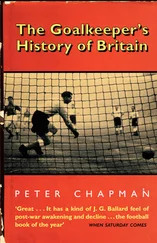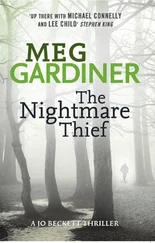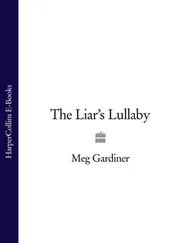By 1934 there were more than a hundred miners’ libraries in the Welsh coalfields, with an average stock of around 3,000 books, though some were much smaller, with a local miner acting as a volunteer librarian one evening a week. Despite the strong religious nonconformism of the ‘tin bethels’ in the Valleys with their crusade for a better life morally, mentally and socially, and the fierce political and union activism of the ‘Little Moscows’ of South Wales, even during the ‘red decade’ of the 1930s few miners seemed interested in reading about politics or economics. The library committees (Aneurin Bevan headed the one at Tredegar) might acquire the complete works of Lenin or Marx, but those volumes remained on the shelves, while the ones that were most borrowed appear to have been Victorian novels (Mrs Henry Wood was much in demand), detective stories or westerns — though, as Jonathan Rose points out, so few borrowing records for the miners’ libraries are extant that it is hard to generalise. An Ynyshir library lent books to three hundred out-of-work miners who read on average eighty-six books a year, whereas a survey of 437 unemployed young men from Cardiff, Newport and Pontypridd revealed that while 57 per cent claimed that reading was one of their most significant leisure activities, only 20 per cent ever visited a library, and only 6 per cent borrowed books. To them, reading meant the daily paper, mostly for sport and horoscopes, or cheap paperback novels exchanged with others in the queue at the Employment Exchange.
The institutes had received their funding from miners’ wages, the Miners’ Welfare Fund and the local authority, so in the harsh economic conditions of the 1930s, when many young men left the Valleys looking for work, and many of those left behind were unemployed, these all but dried up, and the acquisition budgets of most such libraries became non-existent. Miners’ libraries were reduced to issuing public appeals for books, approaching sympathetic public library authorities such as those in Manchester, Bethnal Green or Finsbury in London, all of which sent boxloads of books, or reluctantly ceding their hard-fought-for autonomy and becoming essentially distribution centres for their local public library service. By 1937 many had bought no new books for over a decade, so readers were obliged to read whatever was on the shelves over and over again — and presumably most soon became disheartened by a repetition that echoed so many other dreary repetitions in the lives of the long-term unemployed.
The sports pages, the cinema, football, allotment-tending, pigeon-racing, the kazoo band — all these were traditional working-class leisure activities that in substantial areas of Britain were, by the 1930s, no longer something to do at the end of a working day, a working week, but rather had taken the place of work. What if, as seemed increasingly likely, this was not to be a phase, a transition, but a way of life? The ‘idle rich’ might be an accepted feature of society, but what about the idle poor — even if their idleness was unsought, regretted, enforced, unafforded? Were such men and women to be regarded as the inevitable human cost of industrial decline, to be left to decline themselves, of no further use, supported at a minimal level by the state and allowed to pass their days as if on an unpunctuated weekend, but without the resources to do so? Or were they the vanguard of a new society in which new technologies and a more efficient form of capitalism would mean that there would simply be less work to do and fewer people needed to do it? In 1934 Havelock Ellis, usually described as a sexologist, predicted, rather as Major Douglas and Ezra Pound had done, ‘the four-hour working day as the probable maximum for the future. The day of the proletariat is over. Few workers but skilled ones are now needed. Most of the unemployed of today will perhaps never be employed again. They already belong to an age that is past.’ However, as a Vice-President of the Eugenics Education Society, Ellis was hard-pressed to see that it would be a bad thing if the ‘single proletarian left in England [was] placed in the Zoological gardens and carefully tended’, since, after all, ‘the glorification of the proletarian has been the work of the middle-class’, and the fact was that the ‘lowest stratum of a population which possesses nothing beyond its ability to produce off spring’ would be phased out as a matter of economic evolution.
When the film-maker Humphrey Jennings came to make a documentary for the GPO Film Unit at the end of the 1930s, ‘a surrealist vision of industrial England … the dwellers in Blake’s dark satanic mills reborn in the world of greyhound racing and Marks & Spencers’, the film’s working title was ‘British Workers’. But by the time he had filmed, in Sheffield, Bolton, Manchester and Pontypridd, men walking lurchers, releasing pigeons, playing billiards, drinking in a pub, a kazoo band ‘razzing away at “If You Knew Susie”’ and later carrying a child dressed as Britannia as they play a jazz version of ‘Rule Britannia’, a fairground, women watching a puppet show, a ballroom slowly filling with dancers, lions and tigers padding round their cages in Bellevue Zoo, Manchester, the title had been changed to Spare Time . The voice-over (spoken by the poet Laurie Lee) intoned: ‘Spare time is the time when people can be most themselves,’ as the miners’ cage descended the coalshaft. A re-evaluation of the whole notion of ‘leisure’ was clearly overdue. If talking about the unemployed as having leisure was to ‘mistake the desert created by the absence of work for the oasis of recreation’, how would it be possible to avoid the apathy that various social commentators confidently identified as the final stage the unemployed would pass through, via resolution, resignation and distress. As a ‘rough progression from optimism to pessimism, from pessimism to fatalism’? And if the creation of new jobs was not on the cards, how could the unemployed be encouraged to make the ‘right’ use of the leisure that would be the pattern of their future?
S.P.B. Mais, in his introduction to Time to Spare (1935), was convinced that ‘Left to themselves the unemployed can do nothing whatever to occupy their spare time profitably … This is where you and I come in … we have quite simply to dedicate our leisure to the unemployed,’ and suggested that this meant giving the unemployed man ‘a chance to work [since] playing draughts isn’t going to fit him for anything except perhaps the asylum’. Mais was full of ideas for ‘work’: ‘I don’t care what it is you set up,’ he insisted, ‘from a forge for men to work on the anvil to a stamp collecting society. It’s all grist to the mill. There cannot be too many interests in an unemployed man’s life … sell him the best leather at the cheapest possible rates and let him learn how to mend his boots for himself and his family … make it possible for him to buy [Mais stressed: ‘you will have noticed my insistence on the word buy . The unemployed do not want charity . They prefer to pay to the limit of their capacity to pay’] … to buy wood, then encourage him to learn how to make chests of drawers, wardrobes, chairs and other necessities of household furniture … to buy material and learn to make his own suits.’ Give the wife and family of an unemployed man a holiday, or imitate ‘the young Cotswold farmer who … gave up his summer to entertaining relays of school children from Birmingham … This principle of adoption should be extended to towns, and prosperous towns in the South like Brighton should adopt derelict towns in the North like Jarrow.’ But Mais recognised that this help should involve neither ‘charity (in the wrong sense) nor patronage’ (though, however well-meaning he may have been, the latter seemed rather evident). What was needed was either for ‘you and I’ to ‘join a local occupational club’, or if there wasn’t one, ‘get one going … all that is required to start with is a disused barn, hut or shop and the goodwill of, say, a dozen unemployed men to pay a penny for the privilege of membership’.
Читать дальше












